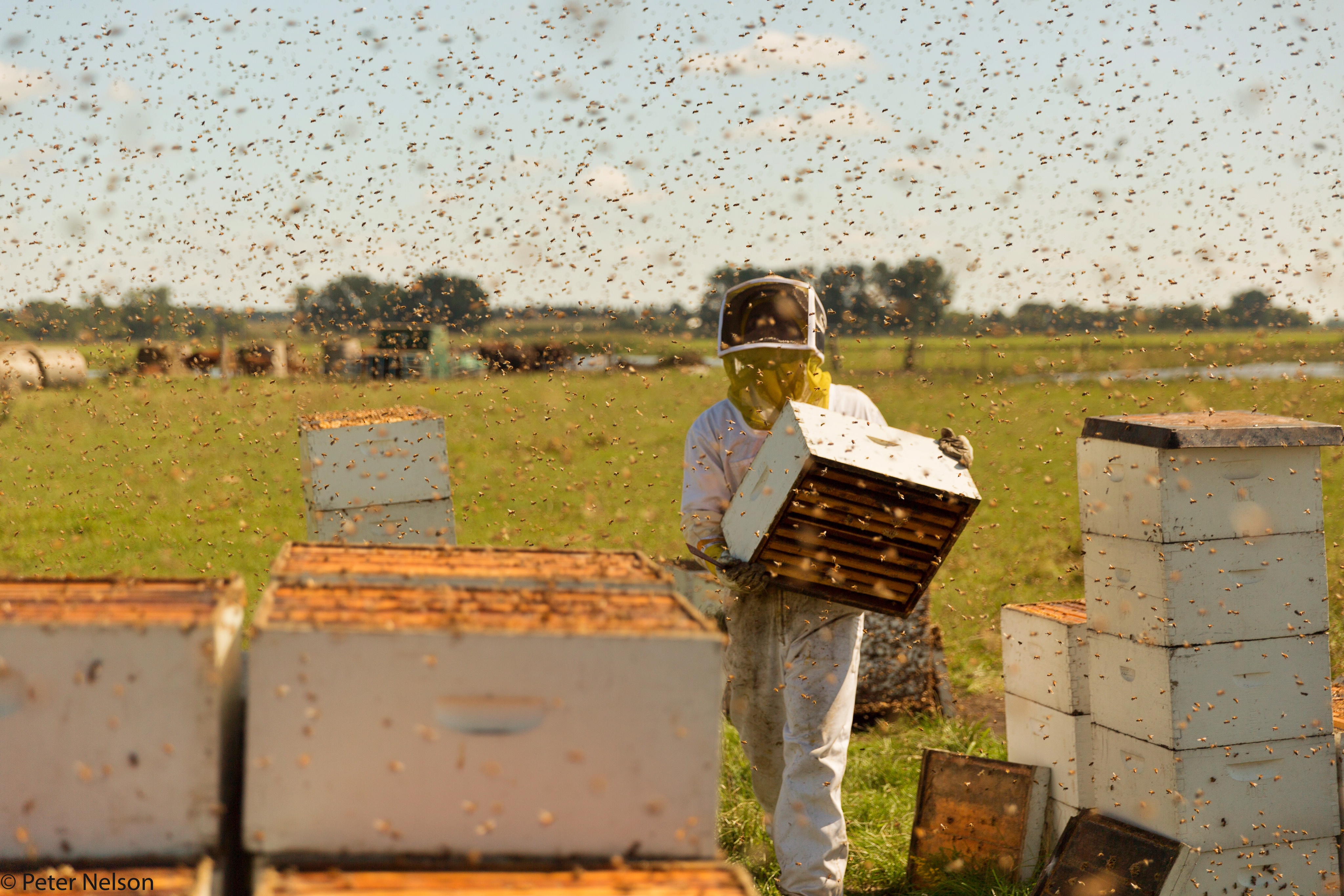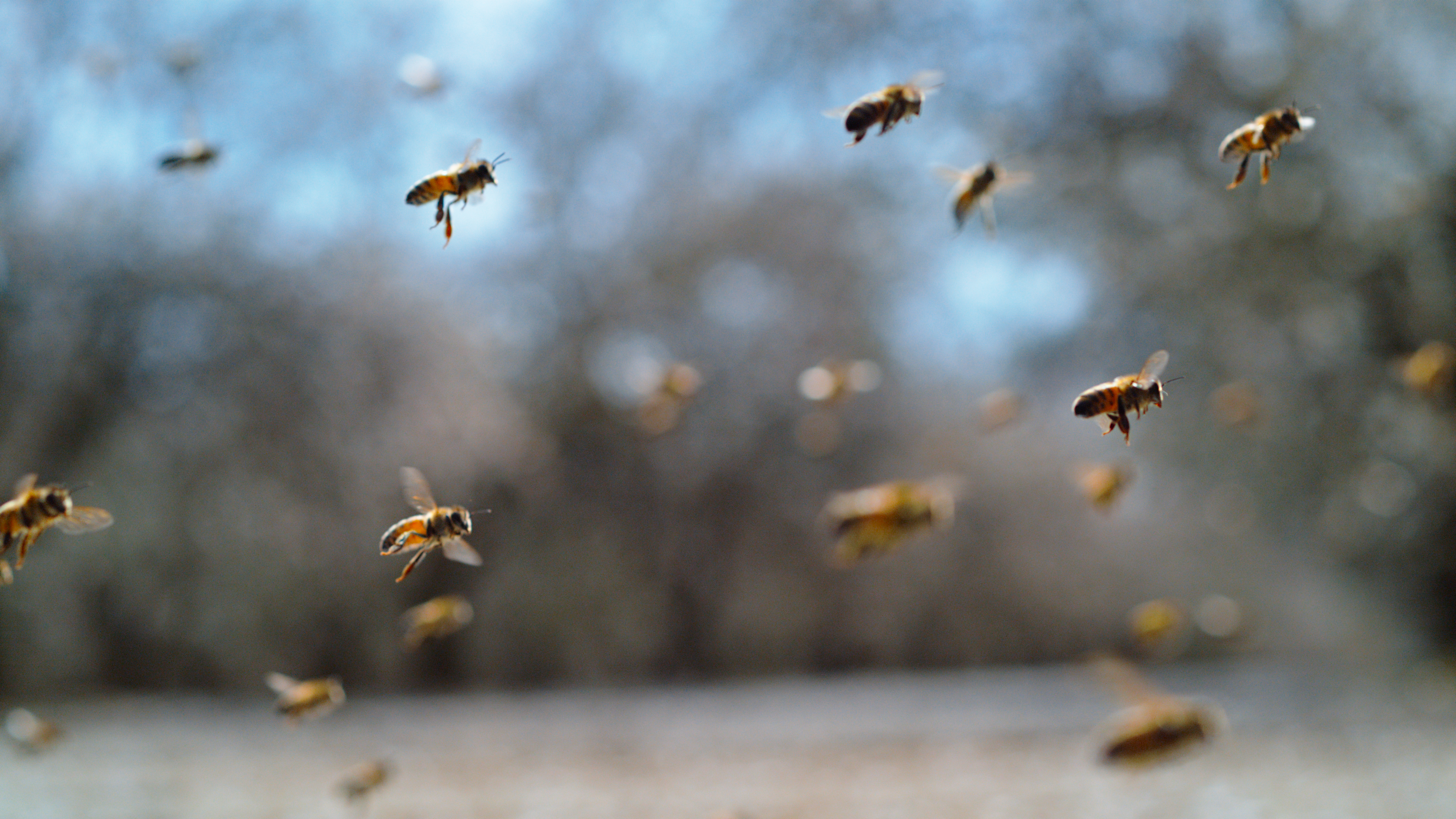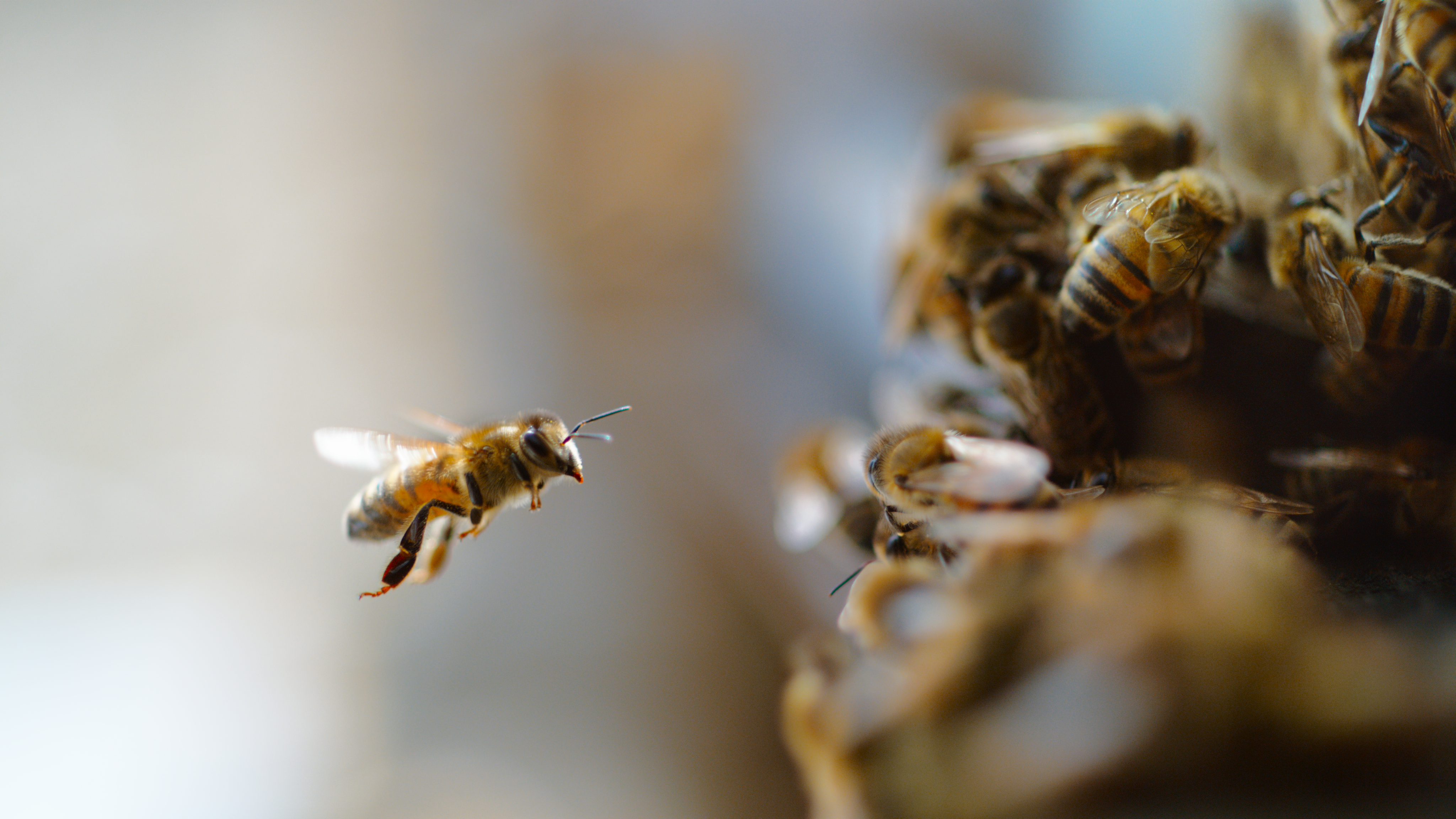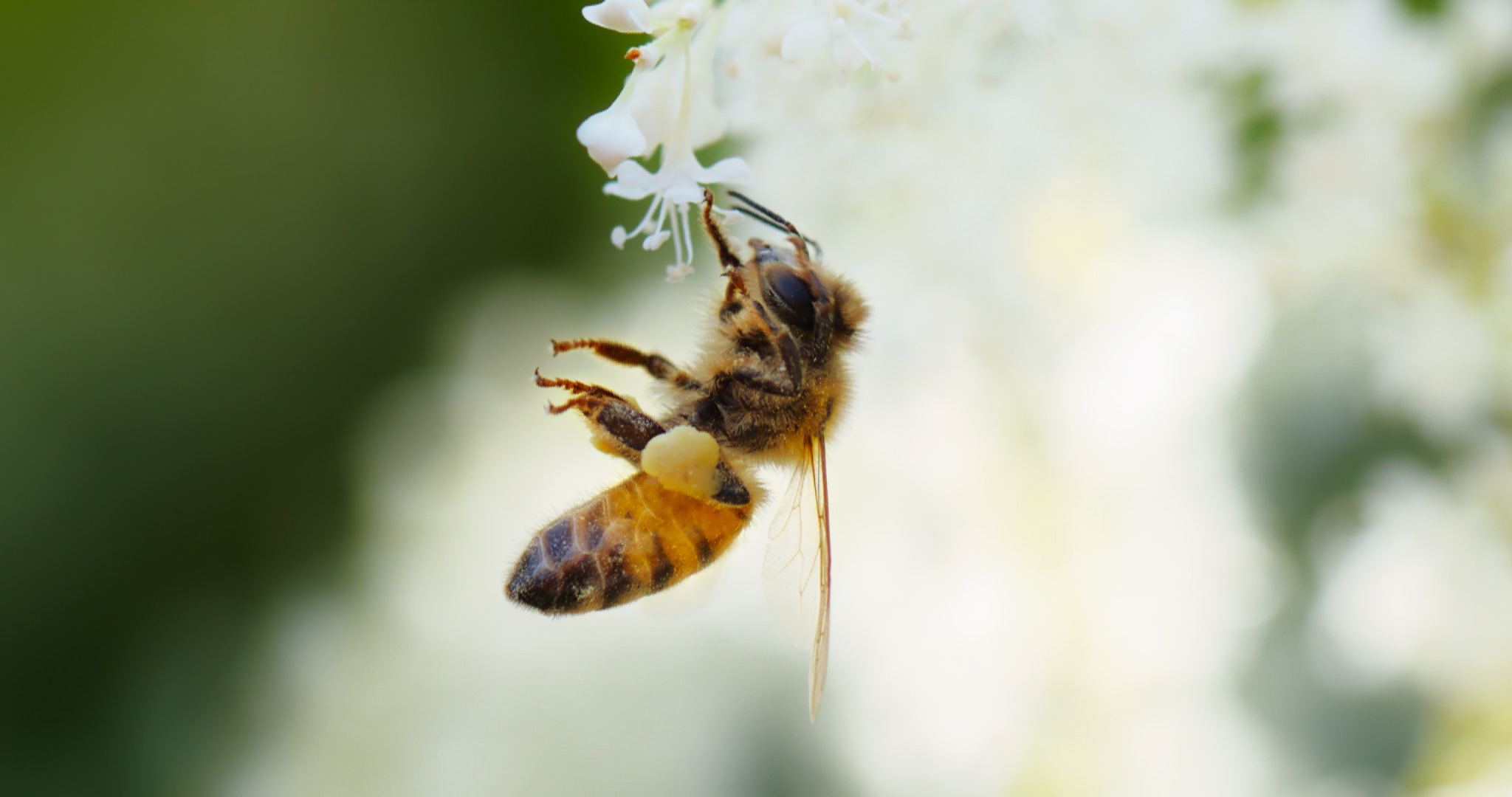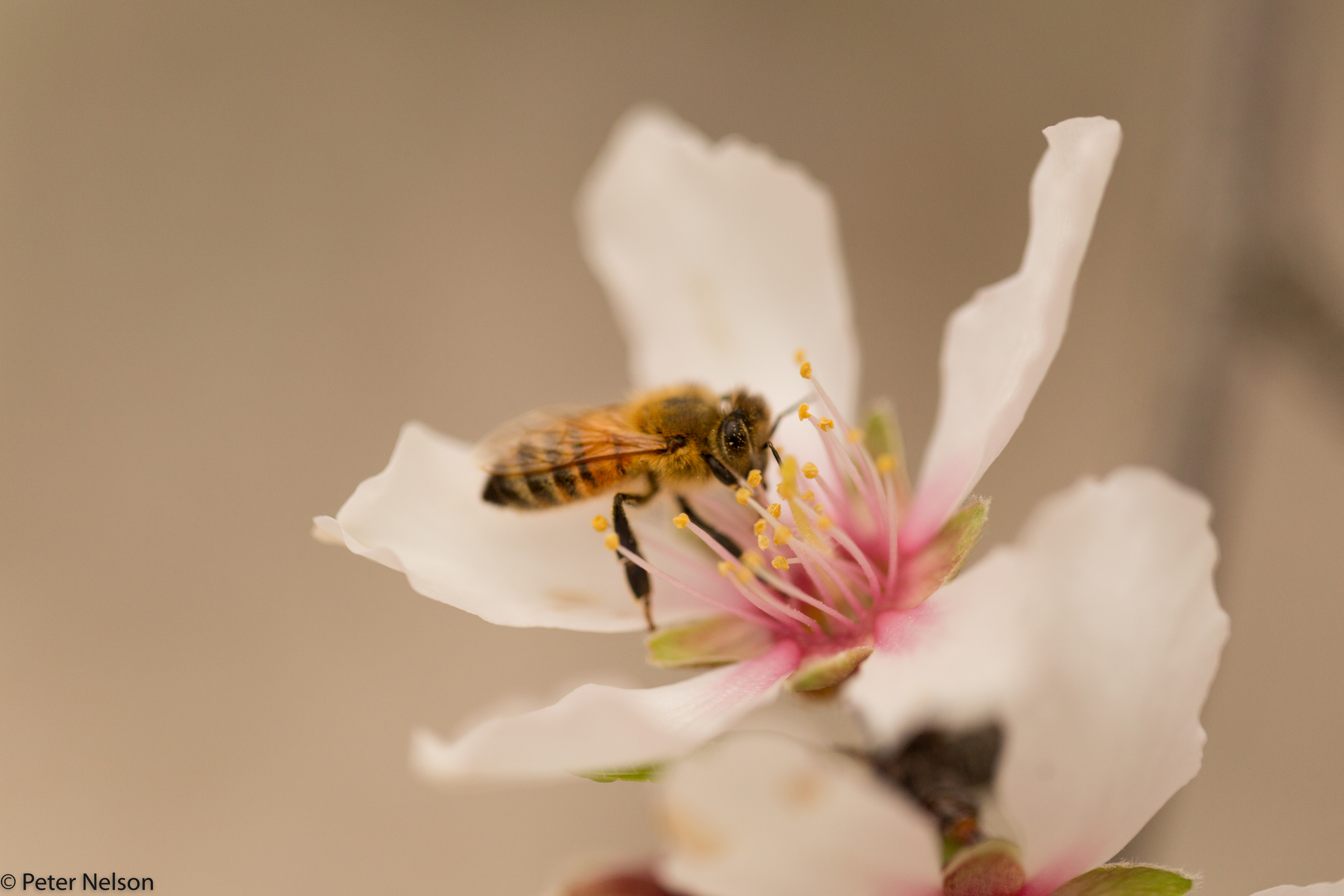Episode 151: Bad News For Bees; Combating Opioids
This week on NEXT:
We’ll travel with a van that’s providing addiction services on the streets of Boston. Plus, how EMTs are helping collect overdose data in Connecticut. We’ll also discuss the choices that parents of deaf children face about how to teach their children to communicate.
And, we’ll learn about how the health of bees affects our food supply. We’ll also go fishing on the Connecticut River.
Finally, we’ll hear from former workers at prominent music venues in Western Massachusetts who say there was a pattern of labor law violations.
It’s NEXT.
Van Brings Addiction Treatment to Boston’s Streets
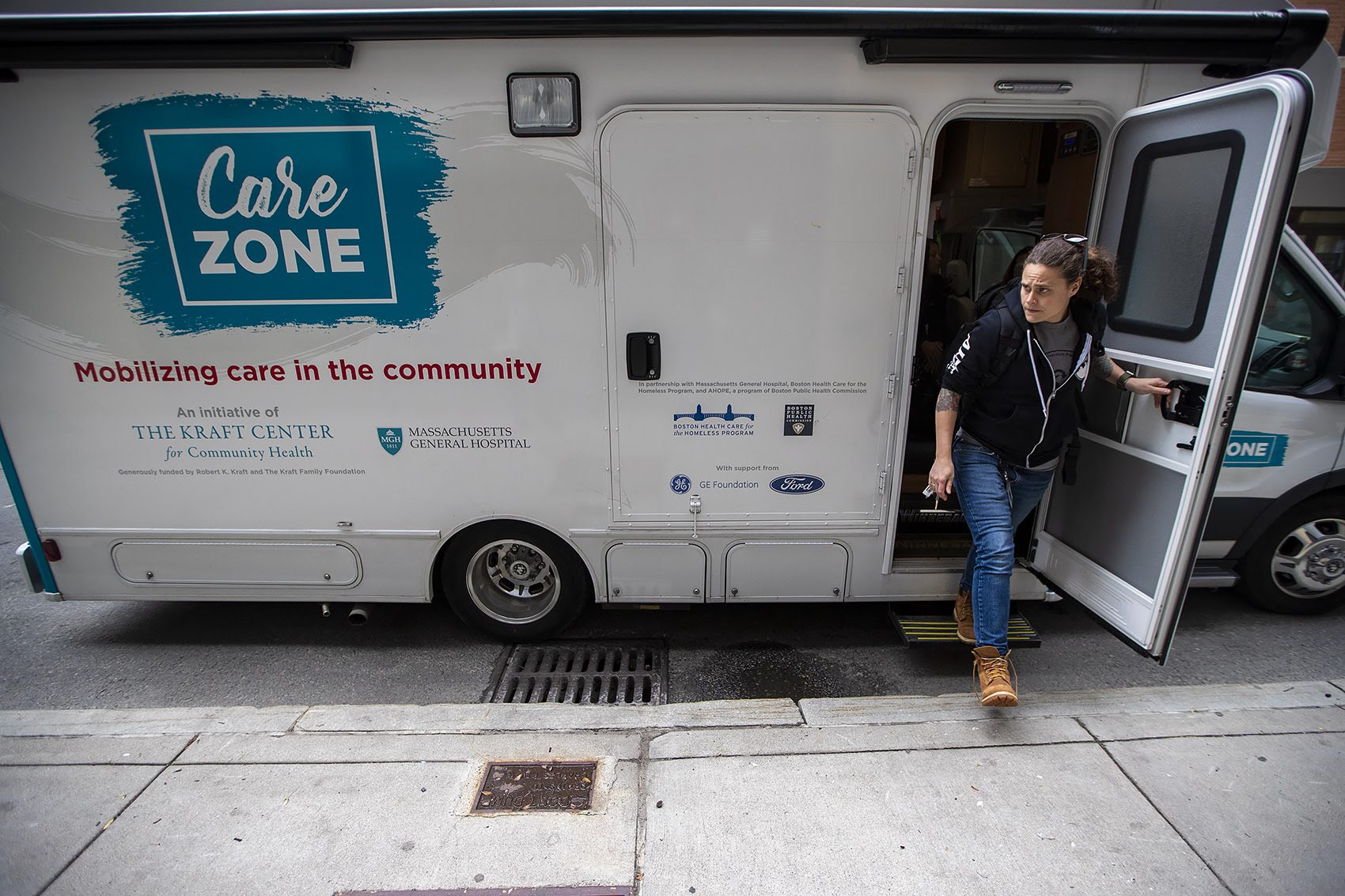
Sarah Mackin exits the Care Zone van after it parks on Haverhill St. near by North Station. They will mobilize and walk around the area to look for opioid users who need assistance. Photo by Jesse Costa for WBUR
We’re going to begin this week with two ideas about how to tackle the opioid epidemic.
And our first stop is in an oversized white medical van in Boston. It’s based on the concept that the treatment needs to be as easy to find as the drugs.
Let’s go with WBUR’s Martha Bebinger as she takes a ride.
How One EMT’s Data Collection Effort Went Statewide
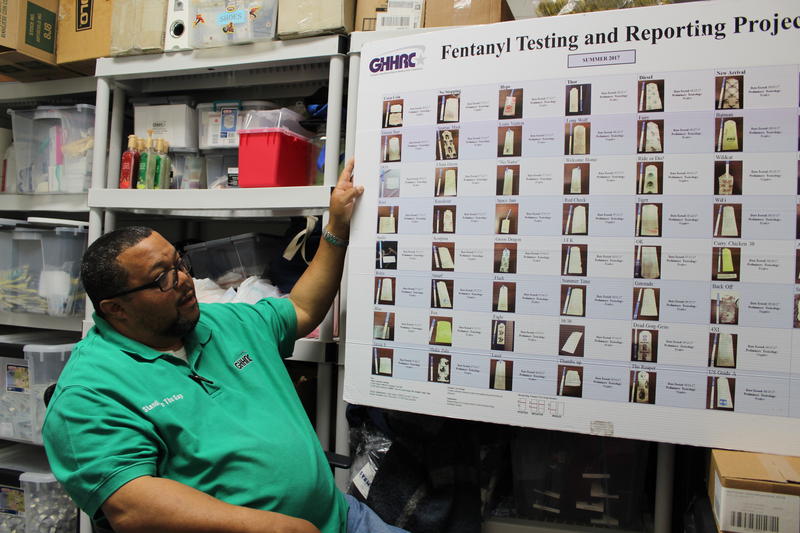
Mark Jenkins with Greater Hartford Harm Reduction Coalition shows a chart of recovered baggies of street drugs branded with names and logos. Photo by Cassandra Basler for WSHU
Finding data about opioid overdoses can be difficult for public health officials and first responders – but having that information can help them save lives.
A paramedic in Hartford, Connecticut grew impatient waiting almost two years for state data on opioid overdoses.
WSHU’s Cassandra Basler explains how his efforts to track the crisis in real time turned into a statewide program.
The Choices Parents of Deaf Children Face
- Deaf families choose between teaching spoken language or ASL to their deaf children. Photo by Cloe Poisson
- Deaf families choose between teaching spoken language or ASL to their deaf children. Photo by Cloe Poisson
The first permanent school for deaf students in America was founded right here in New England back in 1817: The American School For The Deaf in West Hartford, Connecticut.
Over the last 200 years, the possibilities for deaf students have increased, but their parents still face a tough choice: how should they teach their children to communicate?
That’s the topic of a new special reporting project by reporter David DesRoches from Connecticut Public Radio, “Making Sense: Deaf Children and the Choices Their Parents Face.” David joins us to discuss his reporting.
How the Health of Pollinators Impacts Our Food
- Photo by Peter Nelson
- Photo by Peter Nelson
- Photo by Peter Nelson
- Photo by Peter Nelson
A new study finds one quarter of New England wildflower species have disappeared in the last 150 years. Researchers are worried about what that means for local ecosystems. The decrease can be attributed to pollution, urban development, invasive species and climate change.
And the decline of our region’s wildflower species isn’t the only threat to our pollinators. Researchers have found that since 1947, the population of managed honey bees has dropped from 6 million colonies to 2.5 million.
NPR reported this week that, “Bee colony death continues to rise. According to the Bee Informed Partnership’s latest survey, released this week, U.S. beekeepers lost nearly 40% of their honeybee colonies last winter — the greatest reported winter hive loss since the partnership started its surveys 13 years ago. The total annual loss was slightly above average.”
How does the loss of pollinators affect our food system?
That’s the subject of a new documentary, The Pollinators. Peter Nelson is the director and the director of photography of the film, and he joins us.
Visit their website for information on where you can see the film. Upcoming screenings in our region include the Woods Hole Film Festival on July 31, 2019 and the Middlebury New Filmmakers Festival from August 22 to August 25.
Fly Fishing the Connecticut River

Fishing Guide Bill Bernhardt fishing the cold rushing waters of the Connecticut. Photo by Sean Hurley for NHPR
Let’s head north to one of the best fly fishing spots in our region…
NHPR’s Sean Hurley went out with a couple of busy guides on the Connecticut River before the fishing season began to learn some of their secrets.
Workers at Mass. Music Venue Allege Labor Law Violations
- The Calvin Theatre at 19 King Street in Northampton, Massachusetts. Photo by Ellery Berenger for NEPR
- Former Iron Horse Entertainment Group kitchen and bar worker, Mod Behrens, at his home. Photo by Ellery Berenger for NEPR
- Lindsey Musielak, a former employee at the Iron Horse Entertainment Group box office, stands in front of her alma mater, Smith College, in Northampton, Massachusetts. Photo by Ellery Berenger for NEPR
- Rose Bookbinder, co-director of the Pioneer Valley Workers Center, holds pamphlets explaining workers rights in Massachusetts. Photo by Ellery Berenger for NEPR
- The Northampton Box Office is Iron Horse Entertainment Group’s ticketing headquarters. It’s just off the main intersection in downtown Northampton, Massachusetts. Photo by Ellery Berenger for NEPR
- The Pearl Street Nightclub at 10 Pearl Street in Northampton, Massachusetts. Photo by Ellery Berenger for NEPR
- Eric Suher’s dance club, The Basement, at 21 Center Street in Northampton, Massachusetts. Photo by Ellery Berenger for NEPR
- The entryway to the Iron Horse Music Hall at 20 Center Street in Northampton, Massachusetts. Photo by Ellery Berenger for NEPR
Northampton, Massachusetts is a go-to stop for musicians touring through the Northeast. Sure, it’s a college town, but it’s also home to The Iron Horse Music Hall, a music venue that’s been presenting rock, folk, jazz and world music since 1979. It’s also a mecca for music fans from all over New England.
Since buying the tiny, storefront club in 1995, Eric Suher has expanded into the Iron Horse Entertainment Group, or IHEG, which include five venues, including the classic Calvin Theater.
But some of the big names who’ve crossed IHEG stages have publicly criticized conditions at Suher’s venues. Public officials have also fought with Suher over liquor licenses he kept for years on vacant properties.
Now, new complaints: former IHEG employees are coming forward with claims of wage theft and intimidation. New England Public Radio’s Ellery Berenger investigated.
The Massachusetts Attorney General’s office says it will look into allegations of wage theft made by former employees of Iron Horse Entertainment Group.
A statement from the Attorney General’s office says it “hasn’t received any complaints against [IHEG]” but says employees should reach out to the AG’s Fair Labor Division.
The owner of IHEG, Eric Suher, has not responded to NEPR’s repeated requests for comment. But in a brief interview with The Springfield Republican, Suher denied the allegations.
New England Music Featured on NEXT
About NEXT
NEXT is produced at Connecticut Public Radio
Host: John Dankosky
Producer: Lily Tyson
Digital Producer: Carlos Mejia
Senior Director: Catie Talarski
Contributors to this episode: Martha Bebinger, Cassandra Basler, David DesRoches, Sean Hurley, Ellery Berenger
Music: Todd Merrell, “New England” by Goodnight Blue Moon, “Moonshine” by Billy Wylder, “Field Notes from Another Place” by Noelle Micarelli, “The Sea” by Francesca Blanchard
New to NEXT? You can find every episode or one you missed within our archives.
We need your feedback! Send critiques, suggestions, questions, and ideas to next@ctpublic.org. Help us spread the word! If you like what you hear, rate and review us on iTunes.

